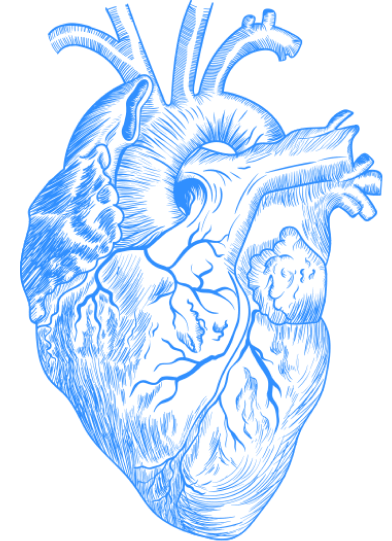
At this point, I have spent one month on pediatric surgery, one month on trauma surgery (a service that deals mainly with adults who need emergency general surgical procedures), and one month on general pediatrics. It’s clear already that physicians treat pediatric and adult patients very differently. Children need high levels of protein and calories in their diets, and pediatricians need to have a higher index of suspicion for congenital abnormalities, or genetic diseases. Children also swallow small objects, and stick objects up their noses, which can cause infections, shortness of breath, or scarring of tissue; this happens much less with adults. But beyond this, there is also a clear difference in the way one reacts to treating these two different patient populations.
With children, the world, from a healthcare perspective, is almost always black and white. One cannot blame a newborn child for soiling a diaper or for crying when being examined. A baby is always innocent — poor parenting or an unlucky genetic lottery pick is usually to blame for sickness. One too many children on the pediatric service fall into these categories. Some parents beat their children so badly that a portion of the intestine ruptures. One infant had multiple broken bones, some of which were considered “old” fractures. I imagine just reading that sentence induces the kinds of horrific shivers I felt upon seeing this child on the service. Who do we blame when multiple tubes need to drain out different colored liquids from the intestines because of child abuse or premature birth? Anyone but the patient. The innocence of children is inviolable and, as such, one cannot help but feel an unrelenting sympathy for them.
With adults, however, gray areas abound. Many older patients have chronic illnesses like diabetes, high blood pressure, obesity, high cholesterol, and cancers. Undoubtedly genetics play a role, but we also hold adults responsible for their own well-being. Smoking, poor diet, refused medications: these are just some of the life choices that invite those chronic illnesses.
Smoking leads to lung cancer. A poor diet leads to diabetes or heart disease. Taking medications regularly for Crohn’s Disease or Ulcerative Colitis can prevent the need for massive abdominal surgeries in which portions of the intestine need to be resected. And if the piece of colon resected was necessary for the patient to be able to defecate voluntarily, he or she needs an ostomy, a procedure in which part of the intestine is connected to a bag on the outside of the abdomen, where stool collects; the patient then empties the bag manually. How easy it is to dump sympathy by the wayside! When we know who the guilty party is, how can we behave impartially? The enervation of seeing patient after patient in a similarly preventable situation on the adult floors eases one into cynicism despite the sympathy and empathy that brought us into medicine.
And this is where the question of physician burnout also comes up. Burnout is defined as loss of enthusiasm for work, feelings of cynicism, and a low sense of accomplishment. In one Medscape survey, physicians of all different specialties were asked whether they experienced at least one symptom of burnout. Pediatricians experienced one of the lowest levels of burnout. Another study, published in JAMA Internal Medicine, found general pediatricians ranked lower on burnout than every other specialty except dermatology and preventive, occupational, and environmental medicine.
Many, many factors account for physician burnout and cynicism in different specialties, including lifestyle, geographic area of practice, private versus hospital practice, and so forth, and I will continue to write about this because it can affect patient care. But among the many factors involved, I do think that the patient population one deals with affects the feelings a physician has toward the patient. After all, it is much harder to sympathize with those who have made mistakes and poor decisions than with those who are only a victim of circumstance.
The job of the physician, and the art of medicine, involves trying to put aside the idea of the culpable adult or the blameless child and to treat the person as he or she stands before the doctor. This is incredibly difficult, but I suspect this push and pull is integral to the imperfect system that we have — a system that deals with human beings and human relationships as well as with science.

Intriguing topic, and one that will likely lead you to different opinions as the volume of your experiences grows. I'd strongly recommend you read at least the first part of "The Righteous Mind", by Jonathan Haidt (http://www.amazon.com/The-Righteous-Mind-Politics-Religion/dp/0307377903). This part of the book dives into moral psychology and how we come to conclusions, with the takeaway that we've got our intuitive reasoning to form an initial opinion, and then engage in post-hoc reasoning to enable our answer to fit with our version of reality/morality/etc.
As a doctor, I'd imagine part of your job is to execute the best medical care regardless of the circumstances/blame related to the patient. Based on Haidt's conclusion, it sounds like it would be nearly impossible for patient care to not be distorted by the caregiver's instinctual reaction to the patient and their situation, regardless of the facts/logic of the case.